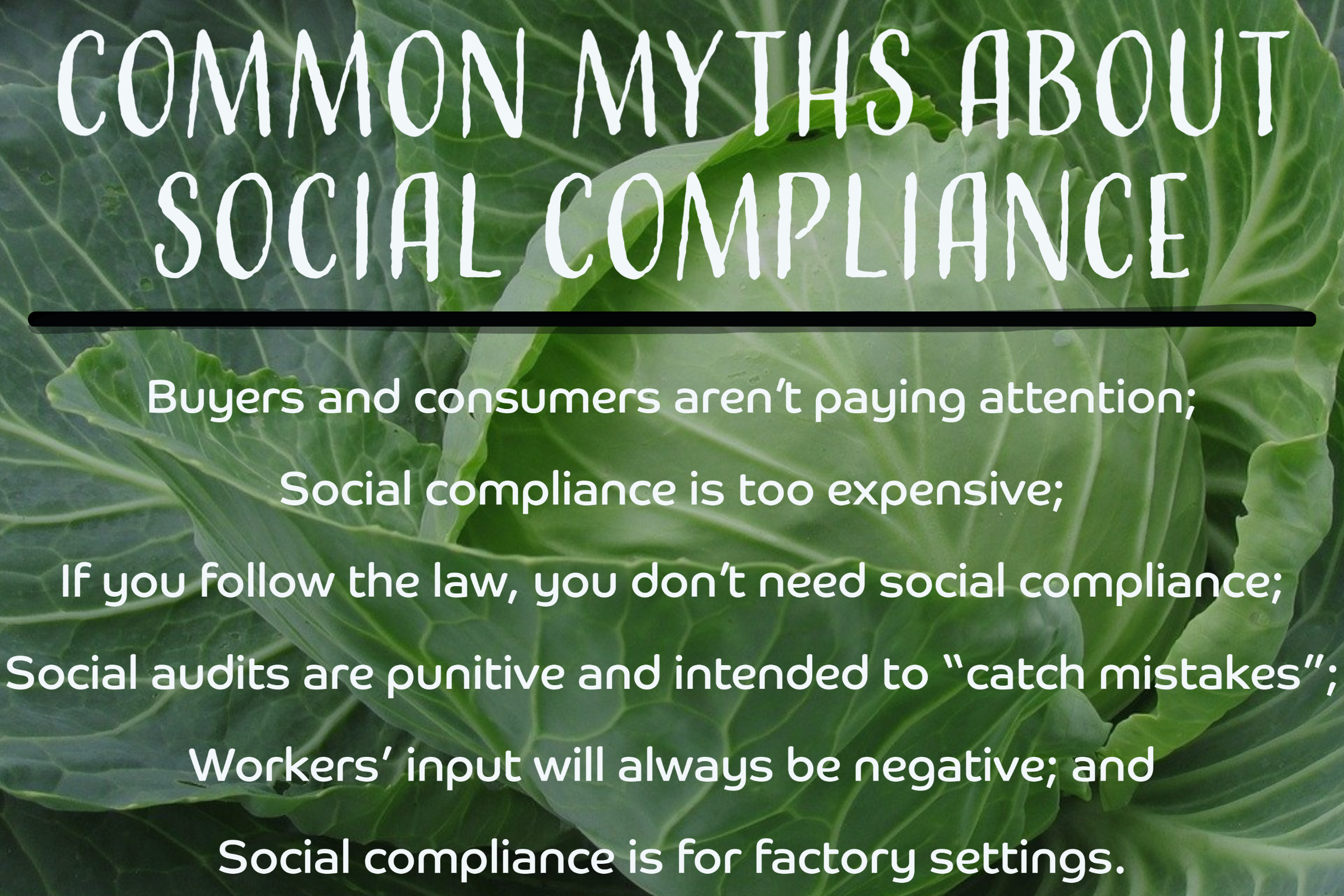Myths of social compliance tackled in People First seminar

This article is part of The Packer's new content series People First: A Spotlight on Social Responsibility. Presented by The Packer and Equitable Food Initiative (EFI), People First will include several weeks of focused content published and promoted across all The Packer platforms. Headlining the program will be a free four-part webinar series that will feature interviews with leaders in the field and cover topics including social compliance, worker voice, recruitment, and The Ethical Charter for Responsible Labor Practices.
Common misconceptions about social compliance and the reality behind them was the focus of a March 2 People First Farm Journal web seminar for the Equitable Food Initiative.
The event, featuring panelists Karla Cook, certification manager for EFI, and Amalia Lommel, director of social responsibility and human resources for San Diego-based GoodFarms, is available for viewing on demand on The Packer’s website.
People First is a spotlight on social responsibility, headlined by a four-part webinar series on social compliance, worker voice, recruitment, and The Ethical Charter for Responsible Labor Practices.

Addressing each point in turn, Cook and Lommel made these points about social compliance:
- Social audits and certifications protect your brand with buyers and consumers;
- Pursuing a social certification can be an investment;
- Social compliance goes beyond legal governance;
- Social audits present the opportunity to improve management systems;
- Worker voice is an asset that can help solve problems creatively; and
- Labor conditions in open fields need as much attention as in factories.
Cook and Lommel have been engaged with social responsibility and social compliance issues for more than a decade.
Lommel said the idea that no one is paying attention to social compliance is wrong.
“Everybody’s paying attention now,” she said.
Consumers are asking questions about where the products are grown, the labor practices of growers, how the environment is being taken care of and more.
If consumers are asking those questions, Lommel said buyers are asking the same questions of their vendors.
For produce marketers, those questions and that attention have big brand implications.
The idea that social audits are “punitive” is short-sighted, Lommel said. For companies committed to social compliance, developing a consistent work culture and environment is the end goal, she said, and an audit can help.
Good Farms looks at social compliance as a win-win investment in the workforce, which in the end helps deliver a higher quality product, she said.
When workers better understand how they fit into the big picture, they are more likely to offer ideas on how to improve processes, Lommel said.
Responding to a question from the audience about cost, Lommel said the several thousand dollars that social compliance certification may cost must be balanced with the gains of having an engaged workforce, retaining employees, being an employer of choice and having an ability to sell produce to buyers who are increasingly questioning how suppliers are taking care of the environment and their workforce.
“All of that is just so much more valuable than the cost of that audit,” she said.







